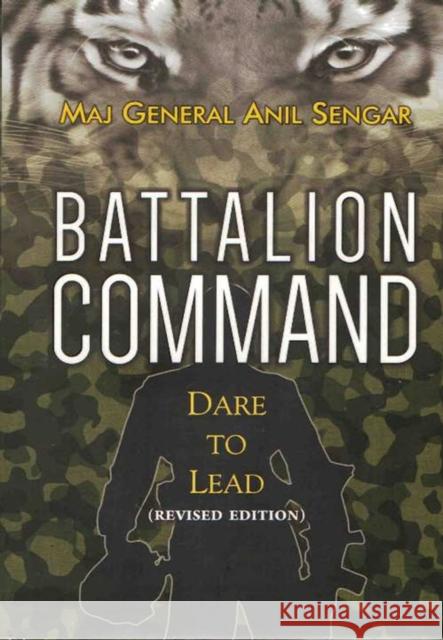Battalion Command: : Dare to Lead » książka
Battalion Command: : Dare to Lead
ISBN-13: 9789390095674 / Angielski
Command assignments are the most cherished part of an officer`s career. Yet, they seem to have become stepping stones for career progression rather than a calling to be cherished and leave a legacy. Today officers assume the command of the units with inadequate regimental experience, as reflected in the number of untoward incidents in many units in the recent past. One took place in the author's division where the commanding officer abdicated command and left his unit in a state of anarchy. This book is the author's perspective on unit command, based on his wide experience and his command philosophy driven by passion, commitment and fearlessness. The book covers a wide range of important issues that a commanding officer has to deal with in war and peace. The author has emphasised that battalion command is all about leadership, and while the army order can appoint one a commanding officer, no order can appoint anyone a leader. That is a moral position which has to be earned through character, competence and personal example. This revised edition has addressed additional aspects such as emotional quotient, human quotient, officer-men relationship, directive style of command, leading from the front etc. as they apply to a commanding officer. The author emphasises the point that the raison d'etre for the unit's existence is to fight and win in war, thus, all activities of the unit must be oriented towards that. The book crystal gazes into the command challenges in future that cover a wide spectrum from human resource to the changing character of warfare and their implications for a commanding officer. The book highlights the immense responsibilities that a commanding officer shoulders, and therefore, the need for him to know his job thoroughly, to be fearless and selfless in command. The author believes that the single most important battle-winning factor is the 'Human Quotient' which needs to be nurtured through top-quality leadership top-down. Based on his experiences, practical recommendations on meaningful training, leadership development and operational effectiveness have been discussed. The author has listed the caveats that he followed as a commanding officer that made his command so special, distinctive and inspirational. They should be a Bible for any passionate commanding officer who wishes to leave his mark as a leader of substance. A must read for officers of all ranks.











